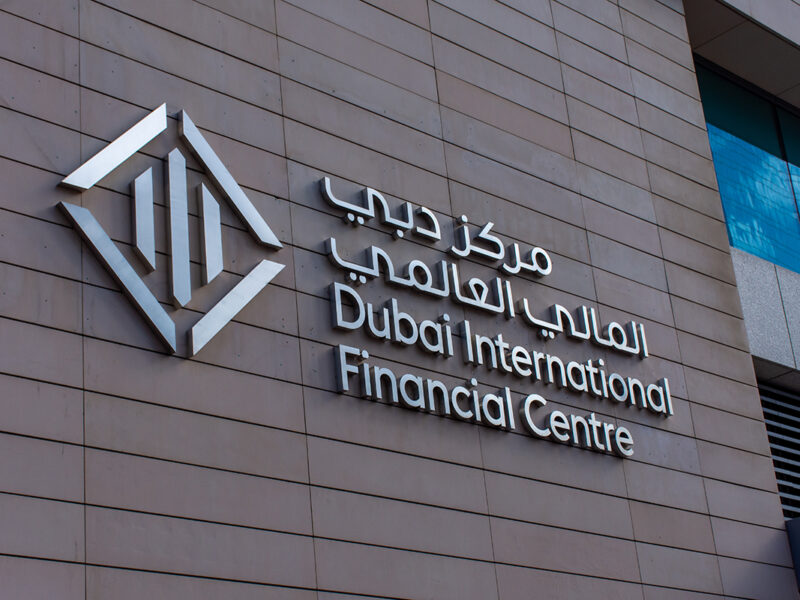Lebanese are turning to crypto-remittances as trust in the country’s banking and financial sector plummets.
Those sending money to family in Lebanon cite faster and cheaper transactions as reasons for using cryptocurrency to remit compared to US dollars or local currency.
Lebanese have increasingly turned to cryptocurrency as a way to gain financial freedom during the ongoing banking and financial crises that erupted in late 2019 which saw the value of the local currency plummet while deposits are still holed up in banks imposing informal and illegal capital controls.
“You would’ve never seen this before. It was only the elite that used to know about crypto and blockchain, but it’s sprinkling down to the masses, and this is interesting, but it’s not surprising,” Lara Abdulmalak, editor-in-chief at Unlock Blockchain told Arabian Business.
Jeremy Arbid, a Lebanese-American crypto enthusiast said he sends remittances to his family via his virtual wallet. Arbid will send his cousin Bitcoin, which can be done nearly instantaneously, and then the family member in Lebanon can find a buyer for the Bitcoin on the chatroom-style social media platform Telegram. In exchange, Arbid’s family gets cash they can use to buy food and staples for the family.
While Arbid sends Bitcoin, others Arabian Business spoke to said they sent money via stable coins – or cryptocurrency supposedly backed by a fiat currency – the most common of which is Tether USDT.
Tey El-Rjula, founder of peer-to-peer money exchange app Fluus, said that he takes USDT from his brother in exchange for a Netflix profile.
Lebanese banks have largely blocked international purchases and transfers, making things like paying for digital subscriptions nearly impossible.
According to research site CryptoCompare, around 80 percent of all cryptocurrency trading is done in USDT, which is allegedly pegged to the US dollar.
“People are familiar with the US dollar, and they trust the US dollar, and they need something digital that mimics that trust and mimics their knowledge of money,” El-Rjula said.
“So we see a lot of people transferring their US dollars or Lebanese lira into USDT and holding it on their Binance accounts.” Once it’s in an account on the cryptocurrency exchange platform, which Lebanese now only need a driver’s license to set up an account, USDT can be transferred or traded with other cryptocurrencies.
Bitcoin is highly volatile meaning it may not be the best cryptocurrency for sending remittances, claimed a blogpost from the London School of Economics on cryptocurrency’s use as a way to send remittances.
But Arbid said he wasn’t worried by Bitcoin’s volatility. “It’s not a large amount of Bitcoin, and basically I buy, send, and sell in a very short timeframe,” he said.
Remittance inflows to Lebanon, which made up 36.2 percent of the country’s GDP in 2020, are projected by the World Bank to decline by only 6.6 percent to $6.9 billion in 2020, despite the country’s financial crisis.
In absence of a formal framework, traders use a peer-to-peer swapping system, contacting one of a handful of established crypto-to-cash brokers in Lebanon or finding a buyer through social media.
Lebanon is on the US government’s Office of Foreign Assets Control sanction list so formal cryptocurrency remittance platforms registered in the US can’t do business there. Paxful, a US-registered company, said they don’t offer their services in Lebanon because of the country’s presence on the list.
 Around 80 percent of all cryptocurrency trading is done in USDT, which is allegedly pegged to the US dollar.
Around 80 percent of all cryptocurrency trading is done in USDT, which is allegedly pegged to the US dollar.
There are no figures on how widespread the use of cryptocurrency to send remittances is, but people inside and outside Lebanon said its use was increasing, and all five individuals Arabian Business spoke to said they knew of multiple people using the practice.
Samir Saad, who opened his Bitcoin Shop in a middle class Beirut neighbourhood to teach people about cryptocurrencies and about the ins and outs of trading, said: “There are many people who stop beside my shop and ask if they can change for me. I told them no because it’s not legal.”
El-Rjula told Arabian Business from the Netherlands that he’s surprised the government hasn’t cracked down on it yet.
“It’s imaginable that they’ll jail people for trading, but I think the government has more important things to do, but day by day, crypto is becoming a threat to the banking system and to the government,” he said.
However, Arbid said the government would have to block apps like WhatsApp and Telegram to really halt peer-to-peer trading.
Between 2014 and 2017 around five or six trusted brokers have cropped up that individuals wishing to swap cryptocurrency for cash can contact and they’ll deliver greenbacks to family or friends, Marcel Younes, founder of Bitcoin du Liban said. The brokers take anywhere between a 0.5 and 5 percent commission, he added.
 Arbid said the government would have to block apps like WhatsApp and Telegram to really halt peer-to-peer trading.
Arbid said the government would have to block apps like WhatsApp and Telegram to really halt peer-to-peer trading.
“A few months ago it was -3 percent. So they were selling for cheaper than what was on the market,” Younes said.
But now, Younes said he’s aware of 50 to 60 resellers that operate largely through the social messaging app Telegram. He said that even the resellers will look to trade through one of the more established brokers.
The informality of the market makes it impossible to do proper KYC, or know your customer, checks, and the system is largely based on trust, those Arabian Business spoke to said.
“There’s probably others in different places that I’m not aware of, but this is a booming market,” Younes told Arabian Business.
The resellers have largely emerged as more individuals look for a side hustle as the value of their salaries in the local currency has fallen dramatically. The Lebanese pound – still technically pegged to the US dollar – has lost over 90 percent of its value as the peg has become defunct.
Fast, easy and cheap
As of last month, there were 5,000 Lebanon-based crypto-wallets and traders had dabbled with crypto, with 10 percent of those actively dealing in crypto and stable coin – a digital currency backed by another asset, whether a different cryptocurrency, gold or a fiat currency – according to an article published in Unlock Blockchain, a MENA blockchain media platform.
But digital currency and blockchain consultant and founder of Bitcoin & Blockchain Beirut/ Lebanese Association for Digital transformation, Randa Al-Rifai said there were around 100,000 individuals, buying, trading, selling or hoarding cryptocurrencies. A Telegram channel with potential buyers and sellers in Lebanon has over 4,000 members, similar WhatsApp groups have 250 people in them, said El-Rjula.
 Younes said he’s aware of 50 to 60 resellers that operate largely through the social messaging app Telegram.
Younes said he’s aware of 50 to 60 resellers that operate largely through the social messaging app Telegram.
Downloads of bitcoin wallet BlueWallet grew by 1,781 percent in Lebanon in 2020 compared to 2019.
Virtual wallets are free to set up, and a fee is charged on trades within the app – a way to skirt costly fees through OMT or another money transfer operator on a transfer that typically takes a few days.
The cost of sending $200 from the United States to Lebanon stood at $18.71 in the fourth quarter of 2020, representing 9.36 percent of the total amount transferred, according to the World Bank. Sending money from the US to Lebanon is the most expensive money corridor, with Canada and Australia following.
“There’s been a hype in the last six to nine months,” Al-Rifai said. “I don’t find it healthy. The crisis and the depreciation of the lira against the dollar have pushed people to try to bring dollars into the country in any way.”
The Lebanese banking system was traditionally a pillar of stability in an otherwise politically unstable country, but now, that’s all changed.
“People in Lebanon depend on remittances from the diaspora. There’s been a problem because members of the diaspora had their savings in Lebanese banks, and people lost their trust because their money is frozen there. And they’ve been trying to get their money out,” Al-Rifai said. Around 75 percent of bank deposits are in now largely inaccessible US dollars, according to the Cato Institute.
The Lebanese diaspora is massive, with estimates putting it between 8 and 14 million globally. Over the last decade, about 60 percent of the remittances to Lebanon flow from the Gulf, research from Carnegie Middle East found.
 The crisis and the depreciation of the lira against the dollar have pushed people to try to bring dollars into the country in any way.
The crisis and the depreciation of the lira against the dollar have pushed people to try to bring dollars into the country in any way.
Fed up with the country’s banks and financial sector, Abdulmalak expects more Lebanese to increase reliance on cryptocurrencies.
“There’s this massive distrust right now not only in the banking sector, but anything that has to do with the financial sector – whether it’s Western Union or any other type that has to move through the central bank,” she said. “I think it’s a move towards more blockchain, more decentralisation, more fintechs that defy the banks so you don’t have to deal with them anymore.”
Even if people don’t understand the risks associated with trading the highly volatile cryptocurrency and how to hold a digital wallet safely, desperation has translated to increased use, she said, adding scams in the crypto-sphere are on the rise. In one, a young man on TikTok started promoting a cryptocurrency, promising it would rise in price within a week – something experienced traders know isn’t easily predictable, she said.
At the end of 2019, the country’s central bank governor Riad Salameh said the bank would launch its own cryptocurrency in 2021, though nothing more has been said about it.
Younes, who set up Bitcoin du Liban to educate people about the alternative currency, said that sending remittances to Lebanon via cryptocurrency is “gaining popularity, but it’s not as widespread as you’d expect”.
In April 2020 when the central bank temporarily blocked withdrawal of transfers from abroad in dollars – mandating transfers sent were taken in the local currency – crypto-remittances peaked.
“The moment we saw Western Union began to give dollars again, it eased,” El-Rjula said, adding that as the crisis deepens, and if restrictions are re-imposed, the practice will gain steam.
 At the end of 2019, the country’s central bank governor Riad Salameh said the bank would launch its own cryptocurrency in 2021.
At the end of 2019, the country’s central bank governor Riad Salameh said the bank would launch its own cryptocurrency in 2021.
The crisis is expected to deepen as the government is now limiting fuel subsidies – one of the commodities for which it once sought to maintain the pegged price – and gas prices are rising as dollar reserves dwindle.
Those Arabian Business spoke with all said a lack of awareness and education was one of the biggest roadblocks to more people using cryptocurrencies to remit, but there are efforts underway to educate people.
El-Rjula teaches a handful of individuals, and Bitcoin Shop’s Saad currently teaches 16 students, but he said he has received interest from more than 70 individuals. He said that increasingly older people in their 50s and 60s are signing up for classes.
Meanwhile, El-Rjula added that single mothers or women whose husbands have emigrated to find work have begun trading. He said for them, even earning $5 a day helps cover some quotidian costs.
Most of those taking classes have family members outside Lebanon, Saad said. But he also added that distrust in the banking system has piqued interest as they look for a way to rescue their savings from the banks.
“My shop is in Lebanon, and people ask me why, but for me it’s important to do this now, especially in Lebanon because people lost trust with the banks,” he said.









